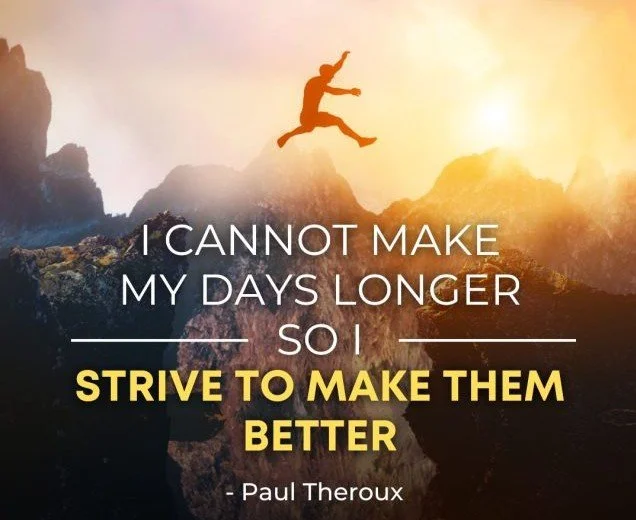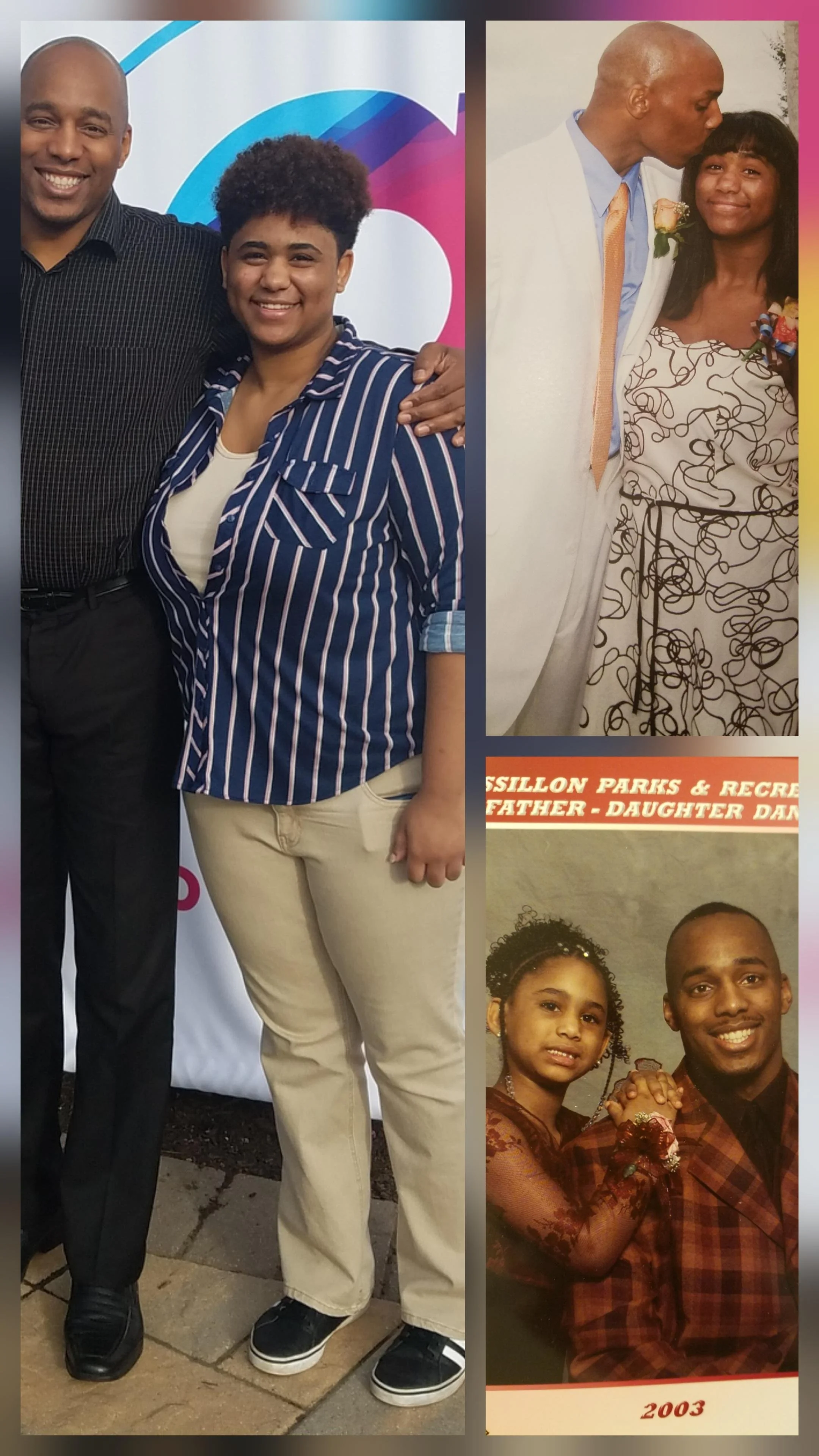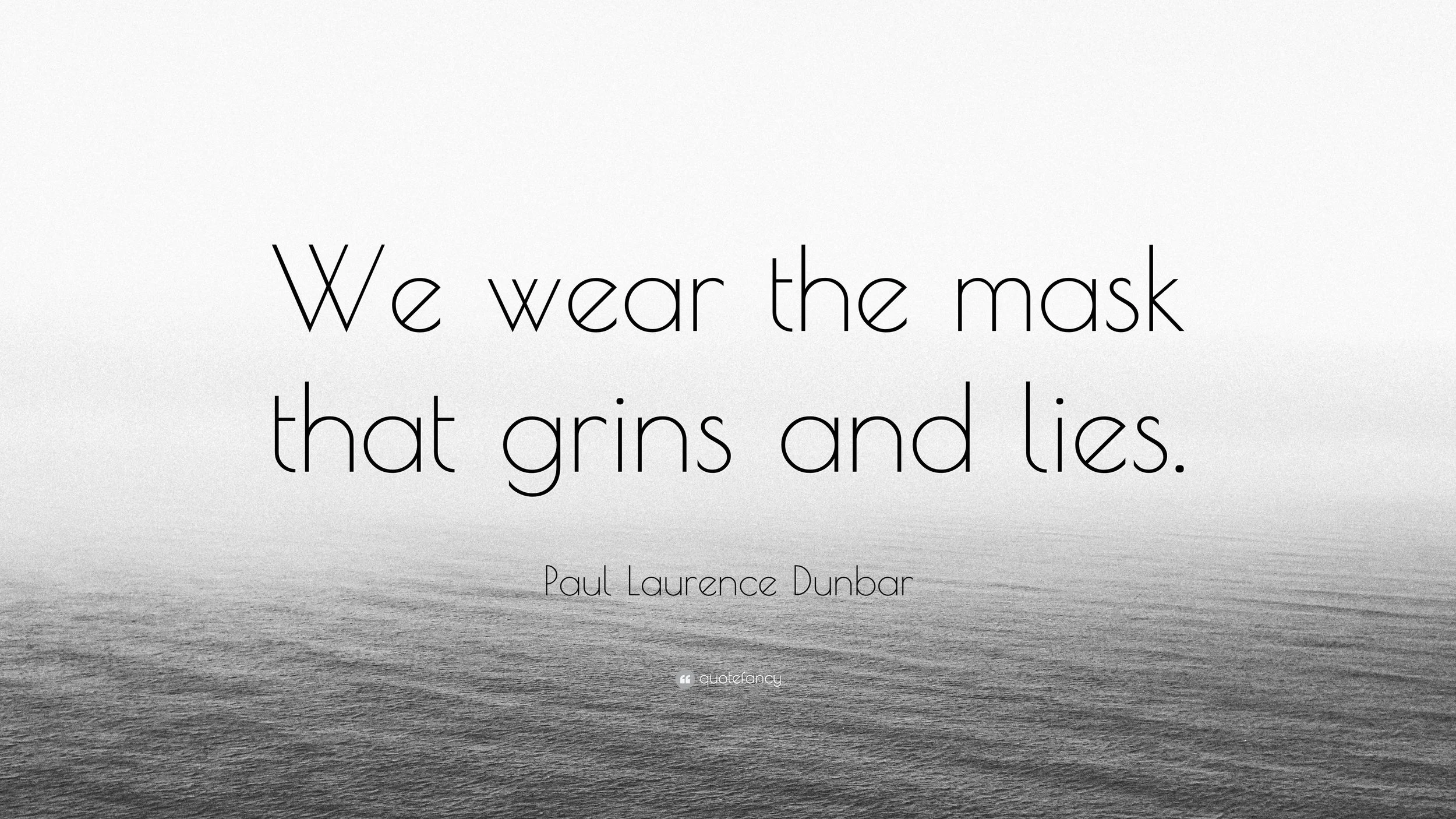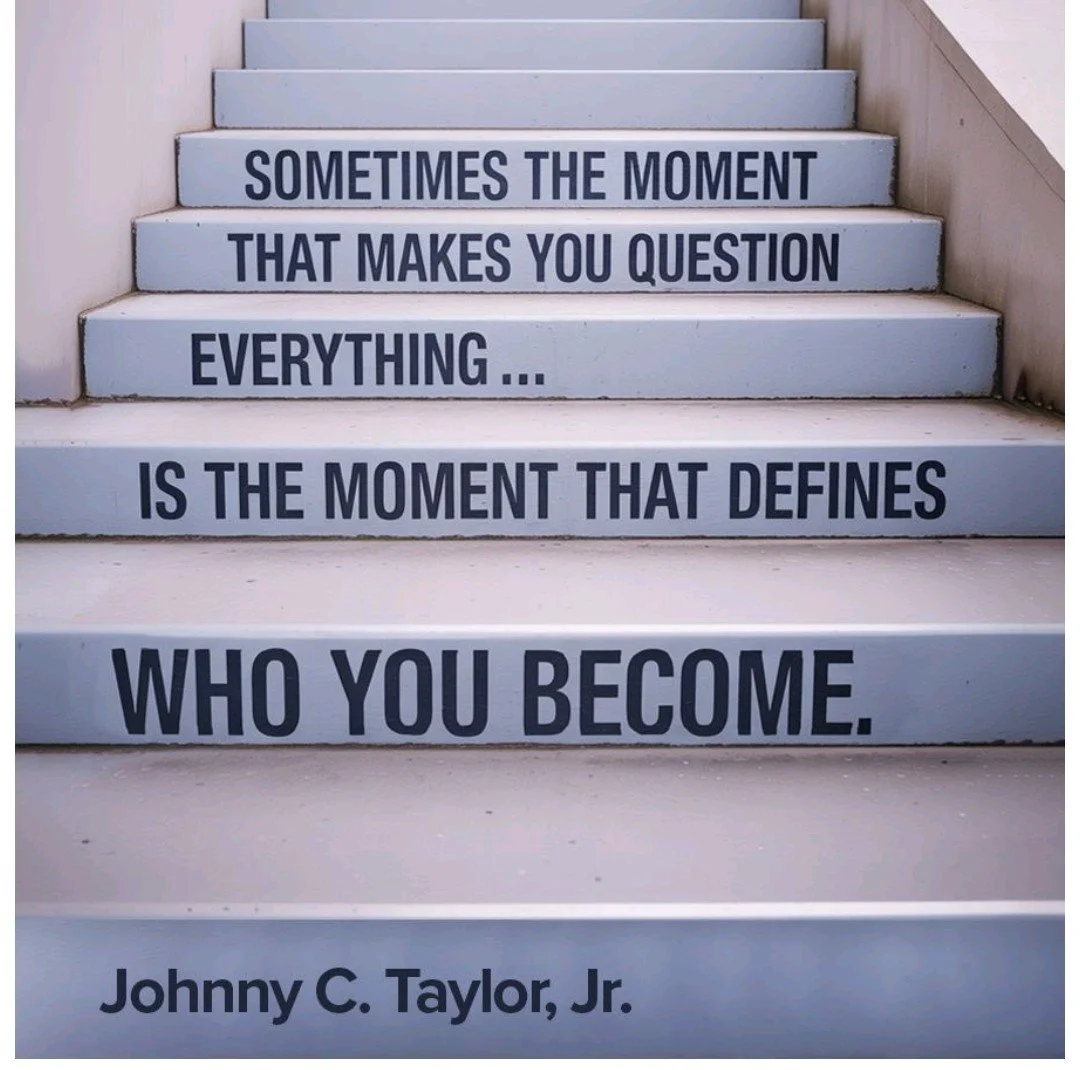Life Gets Shorter Each Day—Make Today Count
There’s a truth we often overlook: our lives are one day shorter today than they were yesterday. That reality isn’t meant to scare us—it’s meant to inspire us. Every sunrise is a reminder that time is moving forward, and every day is an opportunity we’ll never get back.
This truth inspired me to write:
“Life gets shorter each day we live.
Don’t waste today crying about yesterday
or worrying about tomorrow.
Live in the moment and love the life you have.”
Why This Matters
Too often, we let yesterday’s regrets or tomorrow’s uncertainties steal today’s joy. We replay mistakes, dwell on missed chances, or stress about what’s next. But the only time we truly control is right now. When we fail to embrace the present, we miss the chance to lead, grow, and live fully.
Practical Ways to Live, and Lead… in the Moment
Here are five actionable steps to help you make today count:
1. Start Each Day with Gratitude
Before diving into emails or meetings, pause and acknowledge something you’re thankful for. Gratitude shifts your mindset from scarcity to abundance, helping you focus on what’s good instead of what’s missing.
2. Set One Intentional Goal for Today
Big goals matter, but daily wins build momentum. Ask yourself: “What’s one thing I can accomplish today that will make me proud?” Then commit to it. This keeps you grounded and productive.
3. Shake Off Yesterday’s Weight
Mistakes happen. Plans change. Don’t carry yesterday’s baggage into today. Learn the lesson, then move forward. Your team and your future-self need’s your energy focused on solutions, not regrets.
4. Limit Tomorrow’s Worry
Planning is wise, obsessing is draining. Prepare for the future, but don’t let fear of the unknown paralyze you. Remember: most of what we worry about never happens. Replace worry with action.
5. Treat Every Decision Like the Game-Winning Shot
When you lead, every choice matters. Approach decisions with confidence and clarity. Give your best effort, even in small things, because small things compound into big results.
The Leadership Connection
As leaders, our presence sets the tone. When we’re stuck in the past or anxious about the future, our teams feel it. But when we lead with focus, optimism, and resilience, we create an environment where others thrive. Leadership isn’t just about vision, it’s about showing up fully today.
Life is getting shorter. Make today count. Lead like it matters.
Premier Rameir
Facing the Bully or the “Be-oss” Head-On
When I started grammar school, I was fortunate. I didn’t have to live under the pressure of intimidation or operate out of fear. That freedom allowed me to grow, learn, and discover my voice. I figured out where I fit and how to play to my strengths without the shadow of bullying looming over me.
But not everyone has that experience. Many people face bullying—whether as kids or later in the workplace. If that’s you, this blog is for you. I want to share some thoughts and practical steps for confronting bullies and reclaiming your power.
The Game-Changer: “We Teach Others How to Treat Us”
An acquaintance once told me, “We teach others how to treat us.” (Credit: DaSean Flournoy) That statement changed everything for me. It reminded me that I have full control in how I respond to challenging people.
Here’s my approach:
Evaluate the relationship. How relevant is this person in my life?
Assess the value. What’s the cost of engaging or disengaging? (Value Added)
In the workplace, I start by grounding myself in what I know best: who I am, what I believe, and what I stand for. I refuse to compromise my integrity for anyone. Yes, I may work for an organization, but I am not their property. They can request, suggest, or even mandate…but fear will never dictate my choices.
Bullies and “Be-osses”: What’s the Difference?
A few years ago, a colleague (Credit: The Real Deal) and I gave a presentation on being a real boss—not a bully or a “Be-oss.” Here’s how we defined them:
A bully stands on a mountain of perceived privilege.
A Be-oss (a playful twist on a word that rhymes with “witch”) stands on a mountain of their own baggage.
Both rely on fear to maintain control. And many of us have encountered these types of individuals, especially those in positions of power.
During one of our presentations, someone asked: “How do you navigate a negative relationship with a person who sits in a seat of power?” At the time, we gave a quick answer. Now, I want to unpack that and share practical steps.
4 Steps to Face the Bully Head-On
Know Yourself
Be clear about your values, strengths, and boundaries.Acknowledge and Face the Fear
Fear loses its grip when you name it and confront it.Be Confident in Your Position
Stand firm in what you bring to the table. (Value Added)Stay Unwavering in How You Want to Be Treated
Respect yourself enough to command respect from others.
…And if leaving the organization becomes necessary, leave on your terms—not out of fear. Take back control of your narrative.
Final Thought
Bullies thrive on fear. The moment you refuse to play by those rules, you reclaim your power. Remember: you teach others how to treat you. Start teaching today.
Premier Rameir
Off the Hamster Wheel: Turning Busy Work into Bold Vision
“Stop just surviving—start thriving with purpose, clarity, and direction.”
Have you ever felt like your organization is just thriving to exist, doing enough to get by, but lacking a clear sense of where it’s headed? If so, you’re not alone. Many teams fall into the trap of managing tasks and improving processes without a bigger picture in mind. The result? A cycle of short-term fixes and reactive decisions that keep us running… but never moving forward.
The Problem: No Real Vision
When there’s no vision, organizations default to survival mode. We focus on immediate needs, patch problems as they arise, and celebrate incremental improvements. While these efforts are necessary, they don’t create momentum. Without a roadmap, every improvement feels like a one-off win instead of a step toward something greater.
Leaders play a critical role here. If they aren’t providing plans, building blocks, or a clear destination, the team ends up spinning on the hamster wheel, busy, but not progressing.
Why Vision Matters
Vision gives meaning to the work. It answers the question: Why are we doing this? It connects tasks to outcomes and outcomes to impact. Without it, even the most efficient processes feel hollow because they don’t lead anywhere.
A strong vision:
Aligns efforts across teams and departments.
Inspires innovation beyond immediate needs.
Provides clarity for decision-making and resource allocation.
How Do We Change the Attitude?
Start with “Why”
Ask: What is our purpose beyond day-to-day operations? Why do we exist, and what difference do we want to make?Create a Blueprint
Break the vision into actionable steps. Define short-term goals that ladder up to long-term objectives.Empower Leaders to Lead
Leadership isn’t just about managing tasks—it’s about painting the picture of what’s next and rallying the team around it.Shift from Reactive to Proactive
Stop waiting for problems to arise. Anticipate needs, plan ahead, and invest in building systems that support growth.Celebrate Progress Toward the Vision
Recognize milestones that move the organization closer to its future state—not just quick fixes.
The Bottom Line
Getting off the hamster wheel requires courage and clarity. It means moving from “just existing” to thriving with purpose. When leaders provide vision and direction, teams stop managing tasks and start creating impact.
Premier Rameir
Do the Right Thing
Do the right thing, not the wrong thing.
Do the right thing, not your own thing.
Unless your own thing is the right thing—
then everything will be fine!
I came up with this little rhyme nearly 25 years ago for my daughter when she was in preschool. She was strong-willed, smart, courageous, and charming, doing her own thing was practically her superpower. So, I needed a way to teach her about choices without sounding like a lecture. A rhyme felt right because, at the time, she listened when Barney sang, “Clean up, clean up, everybody do your share…”
As I reflect on it now, Do the right thing is more than a nursery rhyme,it’s a simple anthem that rings true in every phase of life. My grandmother, “Gram,” had a favorite saying: “You do the right thing.” No matter what anyone else is doing or has done, take the high road. Never compromise your integrity for anybody or anything.
As a leader, doing the right thing can feel hard when challenges arise. But what you do when nobody is watching, that’s what reveals your character. I want to be able to look in the mirror and be proud of the person staring back at me.
Make doing the right thing a habit, and everything will be fine.
Premier Rameir
Welcome, But You Don’t Belong
An Ode to Paul Laurence Dunbar and Langston Hughes
Introduction
This poem is an ode to two literary giants—Paul Laurence Dunbar and Langston Hughes—whose timeless works “We Wear the Mask” and “I, Too” echo the complex rhythms of identity, resilience, and quiet resistance. Their verses illuminate the paradox of living in a nation that extends welcome with one hand while withholding belonging with the other.
Like them, I navigate the tension between visibility and invisibility, between pride and pain. I, too, wear the mask, one that smiles while concealing truths too heavy for casual conversation. I, too, sing America, even when my voice is met with silence.
My poem, “Welcome, but You Don’t Belong,” is a reflection of this duality—a meditation on the struggle to claim space in a land that questions your presence, even as it benefits from your labor and love. It is a story of standing in the doorway, invited in, yet never quite embraced.
The Poem
Welcome, but You Don’t Belong
by Rameir A. Martin
They opened the door with a practiced smile,
A gesture rehearsed, polite for a while.
"Come in," they said, "we’ve saved you a seat,"
But the warmth in the room never reached your feet.
The walls were adorned with stories not yours,
The laughter like locks behind unseen doors.
You nodded and smiled, played along with the song,
But deep in your chest, you knew it felt wrong.
You were the echo, not part of the sound,
A guest in a place where roots never found.
They clapped when you spoke, but their eyes looked away,
As if hoping your presence would quietly stray.
You are welcome, yes, in word and in tone,
But belonging is more than a space to be shown.
It’s the look that says, “You’re part of this thread,”
Not the silence that hums, “Be grateful instead.”
So you stand at the edge, not bitter, just wise,
Reading the truth in their well-meaning lies.
And you carry your name like a lantern of flame,
Seeking a place that will honor the same.
Closing Thoughts
In the shadows of Dunbar’s mask and Hughes’s quiet defiance, this poem seeks to add another voice to the chorus of those who live in-between: acceptance and alienation, between invitation and integration. It is not a lament, but a lens. Not a cry, but a call.
To be welcomed is not the same as being embraced. And yet, in the search for belonging, there is power in naming the disconnection. There is strength in standing at the edge, lantern in hand, illuminating the path for others who walk the same road.
May we continue to write, speak, and live in ways that make space not just for presence—but for true belonging.
Premier Rameir
With Great Power Comes Great Responsibility: A Lesson I Didn’t See Coming
“With great power comes great responsibility.”
I didn’t hear those words in a classroom or from a mentor. I heard them years after college while watching Spider-Man. Uncle Ben’s message to Peter Parker hit me differently, not because I was swinging from buildings, but because I had lived that truth without realizing it at the time.
It took me back to the spring semester before my senior year of college. That’s when my teammates voted me in as one of our football team captains. I didn’t vote for myself, and honestly, I was stunned. I was the carefree, free-spirited guy with a bit of a country club attitude. I wasn’t exactly known for being a coach’s favorite. I just loved the game and the opportunity to play college football.
So when the coach pulled me aside to tell me the news, he looked just as surprised as I felt. He used that moment to give me what I now call my “Uncle Ben speech.” He didn’t know what kind of captain I’d be…and truthfully, neither did I. If I were him, I would’ve been concerned too.
That moment forced me into some serious soul-searching. I couldn’t take the responsibility lightly. These were my brothers, guys I’d shed blood, sweat, and tears with. If they saw something in me that I hadn’t yet seen in myself, I owed it to them to rise to the occasion.
From that day forward, I made a vow: to lead with confidence, integrity, and compassion. I didn’t try to become someone I wasn’t. I stayed true to my authentic self, the same guy they voted for, but I became more intentional, more accountable, and more aware of the impact I could have.
That experience changed the trajectory of my life. Since then, I’ve found myself in leadership roles time and time again. Whether I was hired into them or others looked to me for guidance, I’ve carried that same commitment with me: to lead with humility, to deliver positive results, and to never forget the honor it is to be trusted with responsibility.
Leadership isn’t about being perfect. It’s about being present, being real, and being willing to grow. I’m forever grateful to those teammates who saw a leader in me before I saw it in myself. They gave me my first real taste of what it means to carry the weight of responsibility, and the privilege of power.
Premier Rameir
Leadership Philosophy: Empowerment Over Ego
Leadership, to me, is not about titles, control, or recognition—it's about influence, clarity, and shared purpose. My leadership philosophy is grounded in two powerful quotes that have shaped how I lead teams, build trust, and drive results.
The first is from President Dwight D. Eisenhower:
“Leadership is the art of getting someone else to do something you want done because he (she) wants to do it.”
This quote speaks to the heart of effective leadership—inspiration over instruction. It’s not enough to assign tasks or set goals; true leadership is about painting a clear vision and creating an environment where others feel ownership and pride in the mission. When people understand the “why” and feel empowered to contribute their best, the results are not only stronger—they’re sustainable.
The second quote that defines my approach comes from the ancient Chinese philosopher Lao Tzu:
“A leader is best when people barely know he exists; when his work is done, his aim fulfilled, they will say: we did it ourselves.”
This philosophy reinforces the idea that leadership is not about the spotlight. I don’t seek accolades or credit. My focus is on ensuring the work gets done, the team grows stronger, and the mission is accomplished. I believe in stepping back so others can step up. And while I’m always ready to take responsibility when things don’t go as planned, I’m just as ready to celebrate the team when things go right.
In both quotes, the common thread is ownership—not just of tasks, but of purpose. My role as a leader is to guide, support, and sometimes get out of the way so others can thrive. That’s the kind of leadership that lasts.
-Premier Rameir
From Denim to Destiny: How a Setback Sparked My Mission
My first adult job came not from a dream fulfilled, but from a dream deferred.
After asking to be released from the Baltimore Stallions of the Canadian Football League due to a preexisting injury, I found myself stepping into a very different arena—retail. I became a manager at a fashion denim store. It wasn’t the gridiron, but it was a new kind of challenge. There, I learned the art of selling. But more importantly, I discovered the joy of connecting with people. Once I leaned into building relationships, the sales came naturally.
Still, something was missing.
I realized that my influence was limited to those seeking a new pair of jeans. While I was grateful for the opportunity, I knew I was meant to impact more than just wardrobes.
Eventually, I found myself back in a CFL training camp with the Saskatchewan Roughriders, chasing personal goals with renewed energy. But even then, something felt off. I was pursuing a dream that, in the end, only served me. When I was released before the regular season began, it felt like a setback—but in hindsight, it was a blessing. That moment forced me to pause, reflect, and ask a deeper question: What is my purpose?
Through meditation and prayer, I found my answer in the form of a personal mission statement:
“To make my world a better place by impacting, influencing, and inspiring positive changes.”
That mission became my compass.
I began by improving the world of me—my mindset, my habits, my values—so I could better serve the world of we. That “we” started with my family and soon expanded to my community when I accepted my first public administration role in my hometown.
From there, my world kept growing—from small departments to large agencies, from one state to another. But no matter how far my reach extended, my mission remained the same.
Along the way, I crafted a quote to keep me grounded and accountable:
“If I am not an example of greatness, let me inspire greatness. If I am unable to inspire greatness, let me influence greatness. If I cannot influence greatness, let me admire greatness. Let my admiration ignite greatness in me!”
Every step of my journey—from football fields to fitting rooms to city halls—has been guided by that mission. And I’m still walking it, one purposeful step at a time.
-Premier Rameir
The Fail Fallacy: I don’t know how to fail.
Failure is a state of mind. It’s a construct — a negative one — that we often accept without question. But what if we chose not to?
One of the greatest life lessons I’ve ever learned came from my oldest son when he was just five years old. Out of the blue one day, he looked at me and said, “I don’t know how to miss!” I was caught off guard, so I asked him what he meant. He replied confidently, “Dad, I make buckets!”
Naturally, we headed to the gym. He picked up a basketball, took a shot — swish. Then another. And another. Three in a row. He turned to me with a big smile and said, “See Dad, I don’t know how to miss!”
In that moment, something clicked. He wasn’t just talking about basketball. He was focused on the outcome he wanted, not the one he feared. He didn’t even entertain the idea of missing. His mindset was wired for success — not because he was perfect, but because he chose to believe in the possibility of making it.
That moment reshaped how I view challenges, setbacks, and so-called “failures.” I began to adopt a new mantra:
“I don’t know how to have a bad day.”
“I don’t know how to fail.”
Because failure, I realized, is often just a label we assign to outcomes that didn’t meet our expectations. But what if we reframed those moments as lessons instead of losses?
I don’t believe in failure as a final destination. I believe in learning. I believe in growth. I believe in showing up, trying again, and choosing to focus on what’s possible — not what went wrong.
Losing isn’t failing. It’s feedback. It’s information. It’s an opportunity to adjust, evolve, and come back stronger. But failure — the kind that paralyzes us, that makes us give up — that’s a mindset. And it’s one I refuse to adopt.
So now, just like my son, I shoot to make it. I live to grow. And I choose to believe that I don’t know how to fail — because I’m always learning how to win.
-Premier Rameir
The Knowledge Paradox: Learning to Know That I Know Nothing
My grandmother used to say, “There is nothing new under the sun.” As a child, I didn’t fully grasp the weight of those words. But they stuck with me—quietly echoing in the background as I grew older and more curious about the world.
Fueled by her wisdom, I set out to learn as much as I could. Books, conversations, experiences—I devoured them all. I believed that knowledge was the key to understanding life, people, and purpose. But something unexpected happened along the way.
The more I learned, the more I realized how much I didn’t know.
“The only true wisdom is in knowing you know nothing.”
— Socrates
Each new insight opened the door to ten more questions. Every answer revealed deeper layers of complexity. What I once thought was certainty became a fog of nuance and contradiction. And in that fog, I discovered a strange kind of clarity: true knowledge begins with humility.
This is my paradox.
I sought knowledge to gain control, but it taught me surrender. I wanted to be wise, but wisdom showed me the limits of my understanding. I thought learning would make me feel full, but it made me feel small—in the best possible way.
“Real knowledge is to know the extent of one’s ignorance.”
— Confucius
There’s a quiet power in admitting, “I don’t know.” It invites curiosity. It fosters empathy. It keeps us teachable.
“As our circle of knowledge expands, so does the circumference of darkness surrounding it.”
— Albert Einstein
So now, when I hear my grandmother’s words—“There is nothing new under the sun”—I hear them differently. Not as a dismissal of discovery, but as a reminder that the journey of learning is not about arriving. It’s about returning—again and again—to wonder, to humility, and to the joy of not knowing.
“It is impossible for a man to learn what he thinks he already knows.”
— Epictetus
- Premier Rameir
The Relevancy Paradigm: Why We Pay Attention to What We Do
In a world overflowing with information, distractions, and decisions, one question quietly shapes our every moment:
Why do we give our attention to some things and not others?
The answer lies in what I call The Relevancy Paradigm—a framework for understanding how we assign importance to the events, people, and experiences in our lives. At its core, this paradigm suggests that the level of relevance we assign to something directly determines how much energy and attention we give it.
The Core Principle: Relevance = Energy
Think of your attention as a currency. You spend it where you believe the return is highest. The more relevant something is to you, the more energy—mental, emotional, physical, or spiritual—you’re willing to invest.
High Relevance → High Attention
Low Relevance → Low Attention
This explains why a passing comment from a stranger might be forgotten in seconds, while a single word from a loved one can echo in your mind for days.
The Four Relevance Categories
To understand how we assign relevance, we can break it down into four key categories:
Emotional Relevance
Does it stir your feelings? Joy, anger, love, fear—emotions are powerful relevance amplifiers.Mental Relevance
Does it challenge your thinking or align with your beliefs? If it stimulates your intellect or curiosity, it grabs your focus.Physical Relevance
Does it affect your body or environment? Pain, pleasure, health, and safety all demand attention.Spiritual Relevance
Does it connect to your values, purpose, or sense of meaning? These are the deep roots of long-term relevance.
How We Prioritize
Every moment, consciously or not, we’re ranking experiences against these categories. A situation that scores high in multiple areas—say, an emotionally charged conversation about your core values—will command your full attention. Meanwhile, something that doesn’t register in any category fades into the background.
This is why two people can experience the same event and walk away with completely different takeaways. Their internal relevance filters are tuned differently.
Why This Matters
Understanding the Relevancy Paradigm can help you:
Manage your energy more effectively by recognizing what truly matters to you.
Improve focus by aligning your tasks with what you find mentally or emotionally relevant.
Strengthen relationships by tuning into what others find relevant.
Live with intention by choosing where to place your attention, rather than letting it be hijacked.
Final Thought
In a noisy world, relevance is your compass. It helps you navigate what to care about, what to let go of, and where to invest your most precious resource: your attention.
So the next time something grabs—or fails to grab—your focus, ask yourself:
How relevant is this to me... really?
-Premier Rameir
The Truth Continuum: Why Truth Is Not Absolute
In a world where facts are often debated and realities seem to shift depending on who you ask, it’s time we reconsider our understanding of truth. What if truth isn’t a fixed point, but a continuum—fluid, evolving, and deeply influenced by our individual and collective experiences?
Welcome to The Truth Continuum, a framework that challenges the notion of absolute truth and explores how perspective, perception, and reality shape what we accept as true.
1. Perspective Influences Perception
Every person views the world through a unique lens shaped by their upbringing, culture, values, and experiences. This perspective acts as a filter, coloring how we interpret information and events.
Two people can witness the same moment and walk away with entirely different perceptions—not because one is lying, but because their perspectives frame the experience differently.
2. Perception Alters Reality
Perception is powerful. It doesn’t just reflect reality—it constructs it. What we perceive becomes our lived experience, and over time, these perceptions solidify into what we call reality.
If you perceive the world as hostile, you’ll likely find evidence to support that belief. If you perceive it as full of opportunity, you’ll see doors where others see walls. In this way, perception becomes a self-fulfilling prophecy.
3. Reality Guides Truth
Once perception shapes our reality, that reality becomes the foundation for what we accept as truth. But here’s the twist: since reality is subjective and shaped by perception, truth becomes relative—not in the sense that anything goes, but in the sense that truth is contextual.
What is true for one person or community may not hold the same weight or meaning for another. This doesn’t mean truth is meaningless, it means it’s dynamic.
4. Truth Is Not Absolute—It’s Evolving
The Truth Continuum reminds us that truth is not a static destination but a journey. It evolves as our perspectives broaden, our perceptions shift, and our realities change.
This framework doesn’t reject the idea of truth—it deepens it. It invites humility, empathy, and curiosity. It challenges us to ask not just “Is this true?” but “True for whom?” and “Under what conditions?”
Why This Matters
In leadership, education, community building, and everyday relationships, understanding the Truth Continuum can help us:
Bridge divides by recognizing the legitimacy of different lived experiences.
Communicate more effectively by meeting people where they are.
Adapt and grow by staying open to new truths as our realities evolve.
Final Thought
Truth isn’t a fixed point on a map—it’s a moving current shaped by the terrain of human experience. When we embrace the Truth Continuum, we don’t abandon truth—we honor its complexity.
-Premier Rameir
Welcome to ready revolution
Strong leaders create strong communities. At Ready Revolution, I share lessons from over twenty plus years in public administration—stories, strategies, and practical tools to help you build welcoming, vibrant spaces where people can connect and thrive. Join me as we explore how bold leadership and inclusive planning can spark lasting change.
Hello friends, and thank you for stopping by. I’m Rameir A. Martin, and I’m excited to finally share this space with you.
Ready Revolution was born from a simple belief: strong leaders create strong communities. Over the past two decades in parks and recreation, I’ve seen firsthand how thoughtful planning, inclusive programs, and courageous leadership can turn a neighborhood park into a heartbeat for an entire city. I’ve also seen the challenges—tight budgets, competing priorities, and the pressure to do more with less—that can hold great ideas back.
This blog is my way of starting a bigger conversation. Here you’ll find lessons learned from leading teams of all sizes, stories from the field, and practical strategies for building places where people feel welcome and connected. Sometimes I’ll share successes and hard-won victories. Other times I’ll unpack mistakes, because real growth comes from both.
Whether you’re a city official, a parks professional, a community volunteer, or simply someone who cares about the spaces where we live, I hope these posts spark ideas and give you tools to make change where you are. Together we can create environments that are not only functional, but also joyful, equitable, and lasting.
Thank you for joining me at the start of this journey. I’m ready for the revolution—are you?
-Rameir Martin












